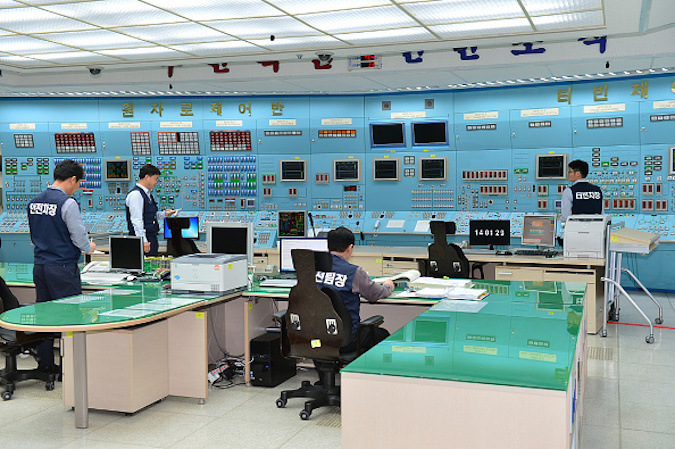The designs and manuals for two reactors have been published on Twitter over the past week, along with personal information on some 10,000 workers at Korea Hydro and Nuclear Power (KHNP).
Officials said Tuesday that South Korea has heightened security in the wake of the leaks, with the defense ministry’s cyber warfare unit increasing its watch-level against attacks from North Korean and other hackers.
The presidential Blue House moved Thursday to allay concerns that hackers could cause a malfunction at one of the nation’s nuclear plants by breaking into its system.
“The control system of nuclear reactors are separated from external networks, and hacking into the system is fundamentally impossible,” the presidential office said in a statement quoted by Yonhap news agency.
Related: MBR Wiper Attacks Hit Korean Power Plant: Trend Micro
KHNP has said the material released on the Gori and Wolsong nuclear power plants was not classified and would not affect safety.
The hacker has styled himself as the president of an anti-nuclear power activist group and threatened to release more information unless the government shuts down three reactors from December 25.
Investigators said Wednesday that the suspect had used multiple Internet protocol (IP) addresses based in China, though this is not always a reliable guide to the geographical location of an Internet user.
Officials have not ruled out the possible involvement of Pyongyang, which Seoul has blamed for a slew of cyber-attacks on South Korean military institutions, banks, government agencies, TV broadcasters and media websites.
But there has been no indication so far that the North was behind the release of the nuclear material.
Related: South Korea Nuclear Plants Stage Drill Against Cyber Attack
Related: Cyberattack on German Steel Plant Caused Significant Damage
Related: Register Your Interest For the 2015 ICS Cyber Security Conference
